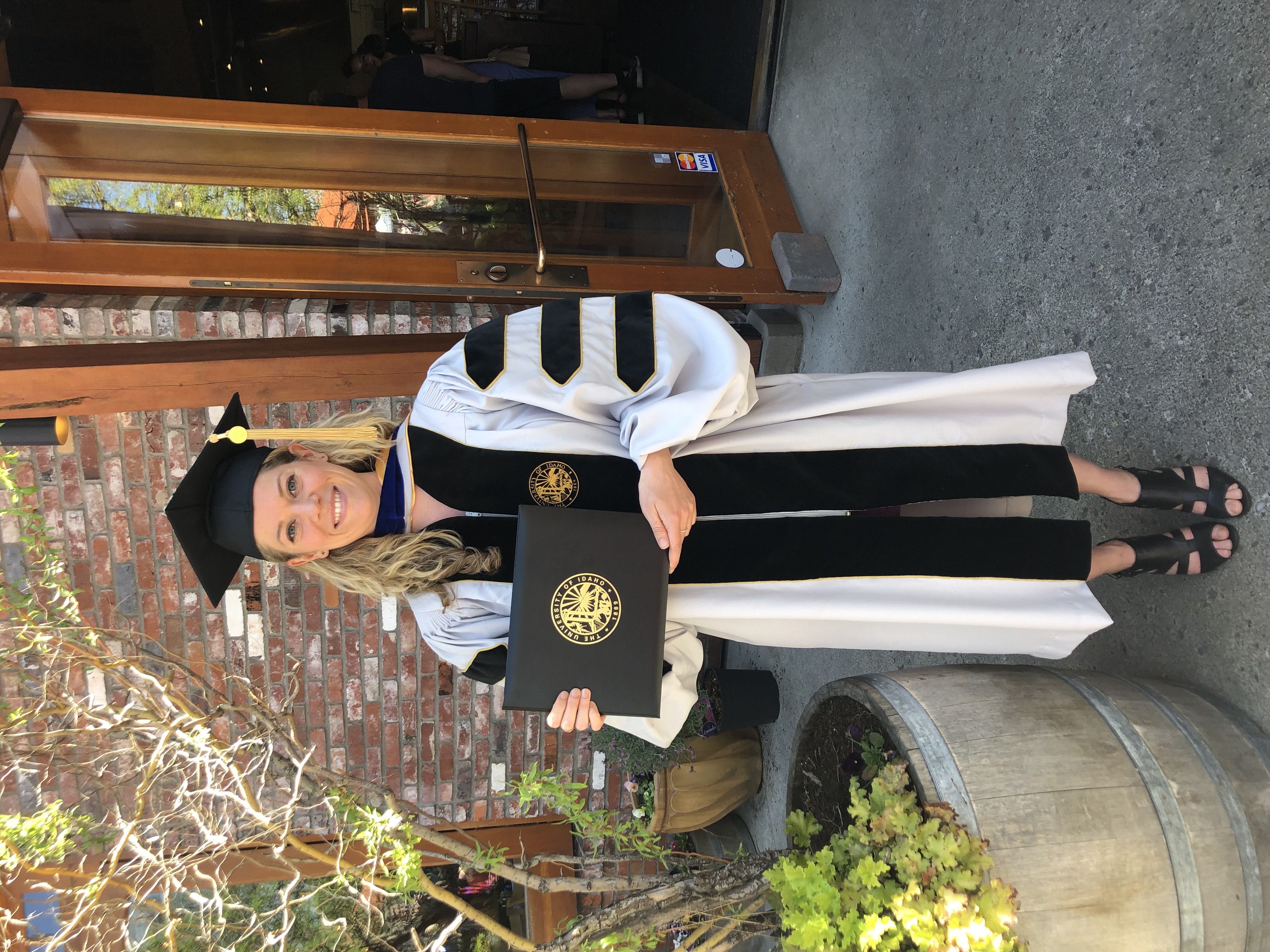Experimenting With Genetics
March 2, 2023Staff Spotlight: Sarah Hendricks
IIDS Bioinformatics Data Scientist Sarah Hendricks analyzes everything from the genomes of wireworms to Catalina Island foxes and the human microbiome.
The extensive library of species she’s worked with began with studying chrysalises (butterfly cocoons) in a nature museum in her undergraduate years, where her curiosity for nature and wildlife made the work easy and exploratory. “It was like being a kid again,†she says.
Fast forward to 2019, when Hendricks graduated from the Bioinformatics and Computational Biology (BCB) doctoral program. She praises the BCB program for equipping her with the skills to apply her passion for wildlife and genetics in all industries, not just in academia.
After graduation, she immediately landed a job as the Senior Research Manager at the San Diego Zoo Wildlife Alliance, a nonprofit that provides training for zoologists. Performing genetic analyses and writing manuscripts became her specialty, but she couldn’t stay away from the University of Idaho for long.
She returned to the U of I to work at IIDS, where she helps researchers design experiments, analyze data, and interpret their results.
“I enjoy interpreting the results the most,†she says. “What does it mean in the greater context of society? You can get results, but it’s a lot more creative to think about how biological processes impact the broader picture.â€
 Her most recent project analyzes how different treatments cause varying levels of gene expression in wireworms, click beetles in their larval stage. The beetles feed on stored grain on the Palouse, and show resistance to the only available insecticides to control them. Hendricks hypothesizes that the study will help inform efforts to reduce grain damage by suggesting treatment that effectively reduces wireworm populations.
Her most recent project analyzes how different treatments cause varying levels of gene expression in wireworms, click beetles in their larval stage. The beetles feed on stored grain on the Palouse, and show resistance to the only available insecticides to control them. Hendricks hypothesizes that the study will help inform efforts to reduce grain damage by suggesting treatment that effectively reduces wireworm populations.
With her strong background in biology and bioinformatics, Hendricks evaluates results to make sure they’re indicative of real biological processes. She provides feedback and quality control at every step of the scientific process, from methodology to discussion.
While she helps researchers validate their results and analyze genetic data on her computer, she also participates in her own kind of field research - foraging for mushrooms.
The hobby is an illustration of her care for nature that she’s cultivated since the beginning of her career, one that shows her commitment to the field of biology by validating and uplifting the results of U of I researchers.
By Kelsey Swenson,
IIDS Scientific Writing Intern